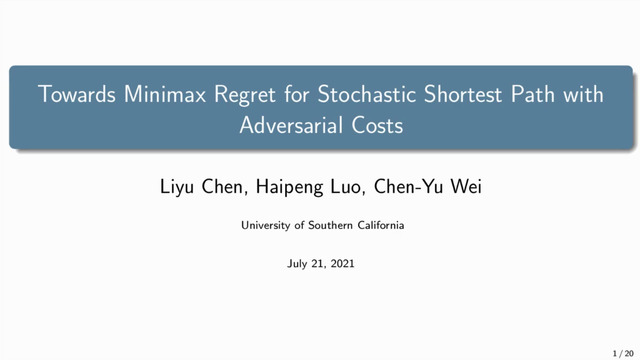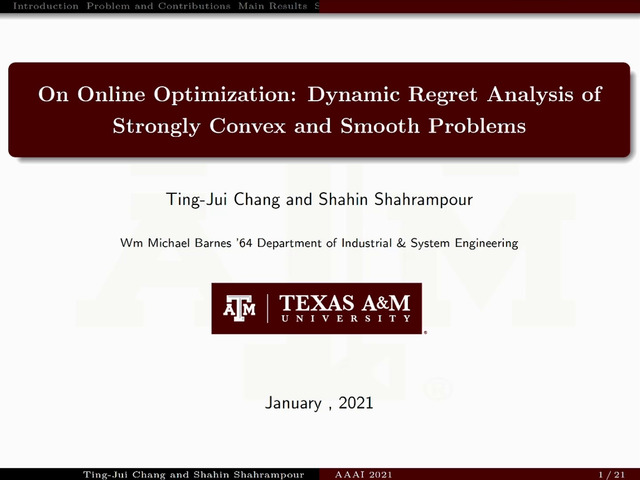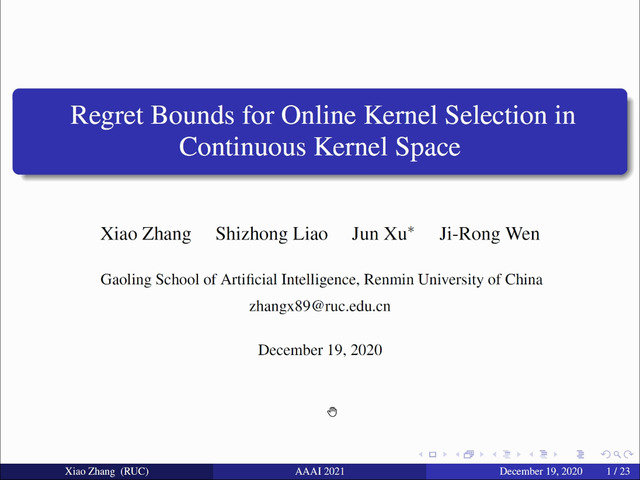Abstract:
We study online learning with bandit feedback (i.e. learner has access to only zeroth-order oracle) where cost/reward functions $\f_t$ admit a "pseudo-1d" structure, i.e. $\f_t(\w) = \loss_t(\pred_t(\w))$ where the output of $\pred_t$ is one-dimensional. At each round, the learner observes context $\x_t$, plays prediction $\pred_t(\w_t; \x_t)$ (e.g. $\pred_t(\cdot)=\langle \x_t, \cdot\rangle$) for some $\w_t \in \mathbb{R}^d$ and observes loss $\loss_t(\pred_t(\w_t))$ where $\loss_t$ is a convex Lipschitz-continuous function. The goal is to minimize the standard regret metric. This pseudo-1d bandit convex optimization problem (\SBCO) arises frequently in domains such as online decision-making or parameter-tuning in large systems. For this problem, we first show a regret lower bound of $\min(\sqrt{dT}, T^{3/4})$ for any algorithm, where $T$ is the number of rounds. We propose a new algorithm \sbcalg that combines randomized online gradient descent with a kernelized exponential weights method to exploit the pseudo-1d structure effectively, guaranteeing the {\em optimal} regret bound mentioned above, up to additional logarithmic factors. In contrast, applying state-of-the-art online convex optimization methods leads to $\tilde{O}\left(\min\left(d^{9.5}\sqrt{T},\sqrt{d}T^{3/4}\right)\right)$ regret, that is significantly suboptimal in terms of $d$.









































